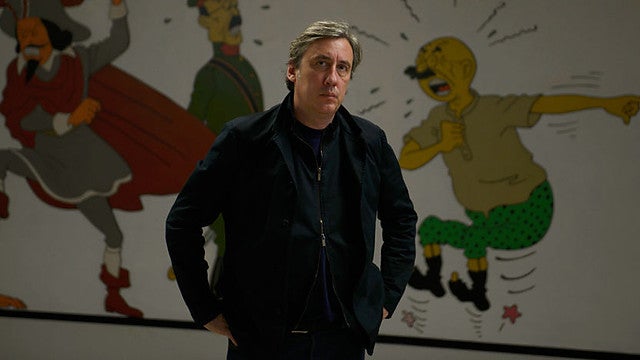TV review: The High Art of the Low Countries, BBC4
Tomorrow's World: a Horizon Special, BBC2

Golden ages. What a lustre they give off from a distance, what a solid gleam of 24-carat achievement. Get a bit closer, though, and you usually find that the gold is adulterated with a lot of baser stuff. There's usually quite a bit of lead and steel in there too.
The point was driven home in the second of Andrew Graham-Dixon's series The High Art of the Low Countries, an episode subtitled "Boom and Bust" and devoted to the period that saw the Netherlands emerge from Spanish rule to become one of the most dynamic cultures and economies on earth. And it wasn't, Graham-Dixon was at pains to remind us, a period of unturbulent prosperity and peaceful creativity but one of violent change and jolting changes of fortune. Producing gold – in cultural terms – is rarely a placid affair.
Graham-Dixon began in what most people would take now as an epitome of tranquil contemplation – the Cathedral Church in Utrecht, a space of white perspectives and clean light that effortlessly fits into a Modernist ideal of beauty. But this is a scarred building not a perfect one, Graham-Dixon explained – the result of an iconoclastic rampage that left empty plinths and blank glass windows behind it. In a side chapel, a polychrome sculpture remained as a warning to the idolatrous, the rawness of its vandalising still shocking. It had been, as he pointed out, literally "de-faced", an abstraction that suddenly regained its sense of intimate mutilation.
I'm not convinced that Graham-Dixon was wise to add animal sound effects to his reading of Paulus Potter's The Young Bull, a genre-twisting painting of livestock. But for the most part, he's very good at ekphrasis, that verbal transcription of a painting that television art historians are required to extemporise while standing in front of it. "Have you ever seen a more vividly rendered cowpat than that!"he asked us. "In fact, have you ever seen a cowpat in art?"
There must be others, surely, but this was a very fine cowpat, crusted around the edges and defiantly down to earth in its account of what agricultural prosperity entailed. Graham-Dixon was on good form too in front of more familiar masterpieces, including a heartbreaking late Rembrandt portrait and Vermeer's View of Delft, not actually painted to supply the perfect concluding flourish to a BBC4 documentary about Dutch art, but performing that function very neatly indeed.
Liz Bonnin thinks we're living in a golden age too, as did quite a few of her contributors in Tomorrow's World: a Horizon Special, a rather odd miscellany that was half a programme about the preconditions for inventive fertility and half just a collection of cheerleading parables of technological optimism. "There has never been a better time to be alive," said Martha Lane Fox, talking of the opportunities available for those who like to shake the world up a bit with a new idea. I found it quite impossible to pin down a consistent line of argument in the thing and some of the content – the long sequence on graphene, for example – was very familiar. But there were intriguing things too.
The bottom line on invention seemed to be that there was no single bottom line. Competitions – such as the Google Lunar X Prize, which is whipping up a private-enterprise Moon race – were seen as a good thing, as were interdisciplinary teams, like the one at MIT run by Bob Langer, who has more than 800 patents to his name. But Bonnin also praised the open-source everybody-chip-in approach, exemplified here by a young man trying to develop a wind-powered skimmer to mop up oil spills. Sadly, what there's no imminent sign of in tomorrow's world is a decent replacement for the series of that name, which would have delivered all the information conveyed here in half the time.
Join our commenting forum
Join thought-provoking conversations, follow other Independent readers and see their replies
Comments
Bookmark popover
Removed from bookmarks